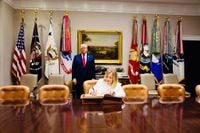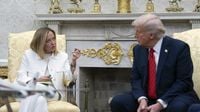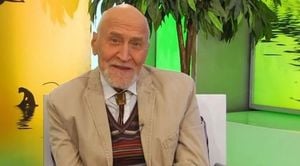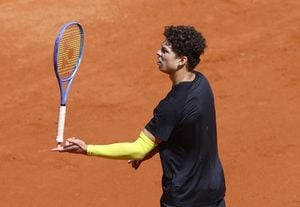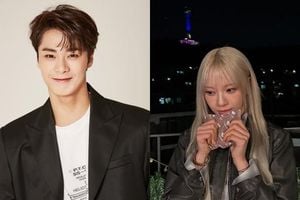Italian Prime Minister Giorgia Meloni met with U.S. Vice President J.D. Vance in Rome on April 18, 2025, less than 24 hours after her discussions with President Donald Trump in Washington. The dual meetings have raised eyebrows in Brussels but were intended to position Italy as a transatlantic partner rather than a divisive element in European politics.
Vance, who is in Rome for Easter with his family, is participating in Holy Week liturgies and is scheduled to meet with Vatican Secretary of State Cardinal Pietro Parolin. Although no official audience with Pope Francis is planned, insiders suggest a brief meeting could occur.
During their talks, Meloni expressed her belief that "Italy can be a key partner for the U.S. in Europe and the Mediterranean," describing the relationship with the United States as "privileged and strategic." Vance echoed this sentiment, praising the "beautiful friendship" between the two nations and joking about Meloni's Italian-language welcome: "Even if she insulted me, it would be in the most beautiful language imaginable."
Trade discussions were a focal point of the meeting, with Vance confirming ongoing negotiations between Rome, Washington, and the broader EU bloc. Meloni emphasized Italy’s desire to be viewed as a "reliable partner" amid ongoing tariff discussions and economic realignments.
Retired ambassador Rocco Cangelosi commented on the political climate, stating that while there is a beneficial atmosphere, nothing concrete has emerged from the talks thus far. "There’s clear ideological affinity, yes, but Trump is still sticking to his tariff stance — and any change will depend on domestic factors like market stress and consumer impact," he noted.
On the topic of the ongoing war in Ukraine, Vance expressed cautious optimism, stating, "We’re hopeful that this brutal war may be nearing an end," and mentioned he had updates for Meloni regarding recent diplomatic efforts in Paris.
Energy security was another key issue discussed during both Meloni's meeting with Trump and her discussions with Vance. The leaders talked about liquefied natural gas (LNG) and civil nuclear cooperation as areas for potential trilateral alignment between the U.S., Italy, and the EU. Trump endorsed Italy's emerging role as an energy "bridge" between North America and Europe, which could enhance energy security across the region.
Stefania Craxi, chair of the Senate’s Foreign and Defense Affairs Committee, highlighted Italy's strategic importance in the Mediterranean, stating, "For the United States, having a friendly country perceived as such by Arab or African coastal powers and actively engaged in the region is a mutual advantage worth cultivating." She added that Italy’s active role contributes to peace, stability, and growth across the broader Mediterranean.
The United States–Italy Joint Leaders’ Statement issued after the White House meeting reaffirmed shared priorities, including enhancing NATO coordination, countering hybrid threats, and engaging in global crises. They also emphasized expanding investment ties, creating resilient supply chains, and transitioning to sustainable energy.
In a notable statement, Trump and Meloni agreed that Big Tech should not face discriminatory taxation. Their joint statement underscored the importance of a non-discriminatory environment for taxing digital services to encourage investments from cutting-edge technology companies.
As the situation develops, EU leaders are closely monitoring Vance’s tone during his visit to Rome, especially in light of past criticisms directed at Europe. Trump has accepted Meloni’s invitation to visit Rome, which could lead to further discussions on trade and energy diplomacy, testing Italy’s multifaceted role as a U.S. partner, EU stakeholder, and player in the MENA and Indo-Mediterranean regions.
On April 19, 2025, Rome will host U.S.-Iran nuclear talks, with Italy’s foreign minister scheduled to hold bilateral meetings with all major delegations. This event underscores Italy's growing diplomatic significance on the global stage.
In a show of support for Meloni, Defense Minister Guido Crosetto expressed pride in her representation of Italy in Washington, stating, "Even more so today, because she is here, Giorgia Meloni, my Prime Minister, the head of the government of which I am honored to be a part, my companion in madness in the adventure of Fratelli d'Italia, my lifelong friend. Yes, I am proud of how Giorgia Meloni today represented Italy and defended the role of Europe and the Western Alliance. Thank you."
As the world watches these developments unfold, the implications for Italy's foreign policy and its role within the transatlantic alliance remain significant. The meetings between Meloni and U.S. officials mark a crucial moment in Italy's diplomatic journey, showcasing its intent to be a pivotal player on the global stage while navigating the complexities of European and international politics.
